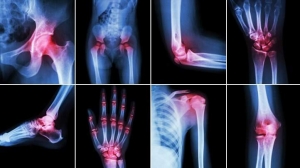Understanding the Impact of Revalidation on UK Healthcare Professionals
Revalidation is a crucial process for healthcare professionals in the UK, ensuring that they continue to meet the high standards required to provide safe and effective patient care. Introduced to maintain and enhance public trust in medical practitioners, revalidation UK is designed to promote professional development and accountability. It applies to doctors, nurses, and other regulated healthcare professionals, requiring them to demonstrate ongoing competence and adherence to professional standards. Understanding the implications of revalidation is essential for practitioners, healthcare organisations, and patients alike. This article explores the impact of revalidation on UK healthcare professionals, highlighting its significance, challenges, and benefits.
Enhancing Professional Standards and Patient Safety
One of the primary objectives of revalidation UK is to ensure that healthcare professionals maintain high professional standards throughout their careers. By requiring periodic assessment and review, revalidation helps identify areas for improvement and encourages continuous learning. This process involves reflective practice, feedback from colleagues and patients, and a demonstration of up-to-date clinical knowledge.
Patient safety is at the core of the revalidation process. By ensuring that healthcare professionals remain competent and fit to practise, revalidation minimises the risk of medical errors and substandard care. It fosters a culture of accountability, where professionals are encouraged to engage in ethical practice and adhere to clinical guidelines. Regular appraisals and documentation of professional development allow regulatory bodies to monitor practitioners' performance, ensuring that only those who meet the required standards can continue practising.
Supporting Continuous Professional Development
Revalidation is not just about assessment; it also promotes lifelong learning and professional development. Healthcare is a rapidly evolving field, with new medical advancements, treatments, and technologies emerging regularly. Revalidation UK ensures that healthcare professionals stay updated with the latest developments, improving their ability to provide high-quality patient care.
Through continuous professional development (CPD), practitioners are encouraged to engage in educational activities such as training courses, workshops, and research. This enhances their skills and knowledge, enabling them to apply the latest evidence-based practices in their work. Revalidation also provides an opportunity for self-reflection, helping professionals identify areas where they can improve and set clear learning objectives to advance their careers.
Strengthening Public Trust in Healthcare Professionals
Public trust in healthcare professionals is fundamental to the success of the UK's healthcare system. Revalidation plays a vital role in maintaining this trust by demonstrating that practitioners are held to high standards and are regularly assessed for their competence and ethical conduct. Patients need to feel confident that the professionals treating them are up to date with current medical practices and are committed to providing safe and effective care.
By making revalidation a mandatory requirement, regulatory bodies such as the General Medical Council (GMC) and the Nursing and Midwifery Council (NMC) ensure that the public can trust in the integrity and professionalism of healthcare providers. The transparency of the revalidation process reassures patients that their well-being is a top priority and that measures are in place to identify and address any issues related to poor performance or misconduct.
Challenges Faced by Healthcare Professionals
While revalidation offers many benefits, it also presents challenges for healthcare professionals. One of the main difficulties is the administrative burden associated with gathering evidence, completing appraisals, and maintaining detailed records of professional development activities. Many practitioners find the process time-consuming, particularly those working in high-pressure environments where patient care demands are already significant.
Another challenge is the pressure to meet revalidation requirements while balancing clinical responsibilities. For some professionals, especially those working in remote or understaffed areas, accessing training opportunities and feedback sources can be difficult. Additionally, revalidation may cause anxiety among practitioners who worry about meeting the required standards or facing potential sanctions if they fail to comply.
To address these challenges, healthcare organisations and regulatory bodies must provide adequate support and guidance to professionals undergoing revalidation. Offering accessible training programmes, clear guidelines, and administrative assistance can help ease the burden and ensure that practitioners can successfully complete the process without compromising their work-life balance.
The Role of Employers and Healthcare Institutions
Healthcare institutions and employers play a crucial role in facilitating the revalidation process. They must create an environment that supports continuous professional development and provides resources for practitioners to meet their revalidation requirements. This includes offering training opportunities, ensuring access to mentorship programmes, and implementing systems that streamline documentation and appraisal processes.
Employers should also encourage a culture of open feedback, where professionals can receive constructive input from colleagues, patients, and supervisors. Regular performance reviews and peer discussions help identify strengths and areas for improvement, making the revalidation process more effective. Furthermore, organisations must prioritise staff well-being, recognising the pressures associated with revalidation and providing necessary support to prevent burnout.
Encouraging Reflective Practice and Self-Assessment
A key aspect of revalidation UK is reflective practice, which allows healthcare professionals to critically analyse their work, learn from experiences, and make necessary improvements. Reflective practice is an essential tool for self-improvement, helping practitioners understand the impact of their actions on patient outcomes and professional development.
By incorporating self-assessment into their routine, professionals can identify gaps in their knowledge, set learning goals, and take proactive steps to enhance their skills. Reflective practice also fosters a culture of openness and learning, encouraging professionals to acknowledge mistakes, seek guidance, and continuously strive for excellence in patient care.
The Future of Revalidation in the UK
As the UK healthcare landscape evolves, so too will the revalidation process. Advances in technology and digital record-keeping may simplify documentation and appraisal processes, reducing the administrative burden on professionals. Online learning platforms, virtual mentorship programmes, and digital feedback tools could further enhance accessibility to CPD resources, making it easier for practitioners to meet their revalidation requirements.
Additionally, there is ongoing discussion about refining the revalidation framework to better address the challenges faced by healthcare professionals. Improvements may include greater flexibility in meeting requirements, more tailored assessment methods, and enhanced support systems to assist practitioners in navigating the process.
Revalidation will continue to be a cornerstone of professional healthcare practice in the UK, ensuring that practitioners remain competent, ethical, and dedicated to providing high-quality patient care. Ongoing evaluation of the system and adaptation to changing healthcare needs will be essential in maintaining the effectiveness and relevance of the process.
Conclusion
Revalidation is a vital component of the UK healthcare system, designed to uphold professional standards, ensure patient safety, and foster continuous development among healthcare professionals. While the process presents challenges, its benefits in improving competence, enhancing public trust, and promoting lifelong learning are undeniable.
For healthcare professionals, engaging proactively with revalidation UK is essential for career progression and maintaining the highest standards of patient care. Employers and regulatory bodies must continue to refine the process, offering necessary support and resources to facilitate successful revalidation experiences.
By embracing revalidation as an opportunity for growth and professional excellence, healthcare professionals can contribute to a safer, more effective healthcare system that prioritises patient well-being and upholds the integrity of medical practice in the UK.





